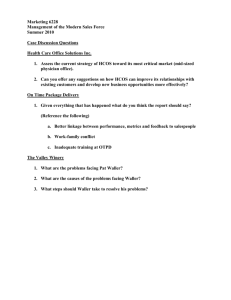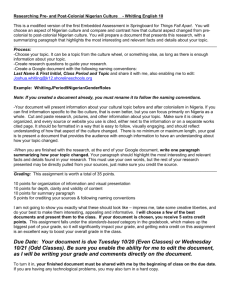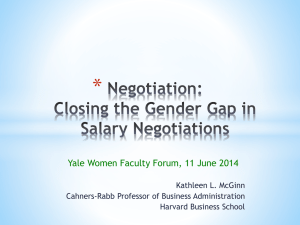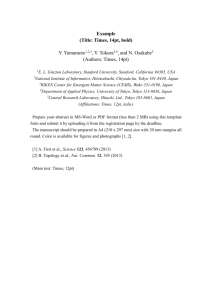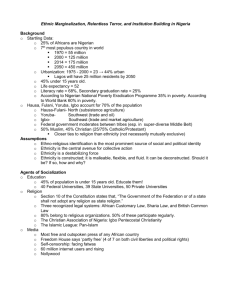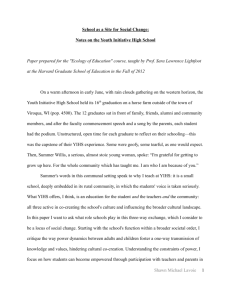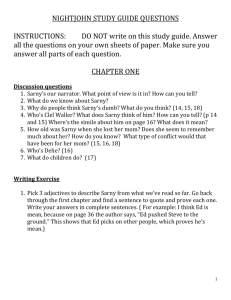Intercultural Negotiation Case Studies: USA, Japan, Nigeria
advertisement
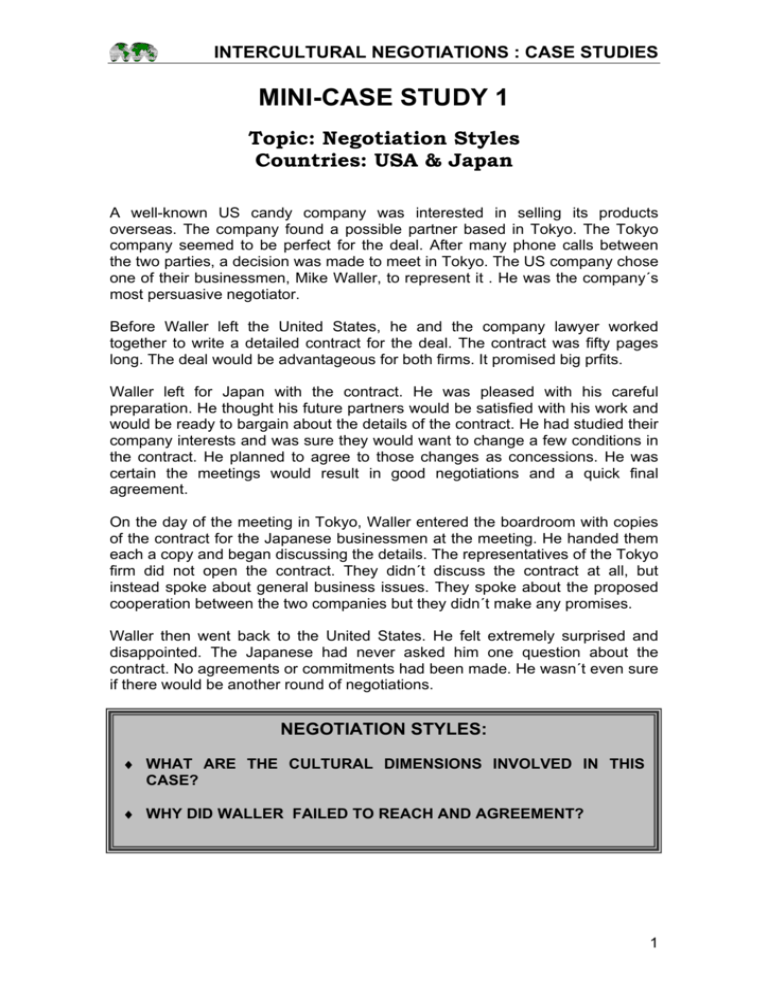
INTERCULTURAL NEGOTIATIONS : CASE STUDIES MINI-CASE STUDY 1 Topic: Negotiation Styles Countries: USA & Japan A well-known US candy company was interested in selling its products overseas. The company found a possible partner based in Tokyo. The Tokyo company seemed to be perfect for the deal. After many phone calls between the two parties, a decision was made to meet in Tokyo. The US company chose one of their businessmen, Mike Waller, to represent it . He was the company´s most persuasive negotiator. Before Waller left the United States, he and the company lawyer worked together to write a detailed contract for the deal. The contract was fifty pages long. The deal would be advantageous for both firms. It promised big prfits. Waller left for Japan with the contract. He was pleased with his careful preparation. He thought his future partners would be satisfied with his work and would be ready to bargain about the details of the contract. He had studied their company interests and was sure they would want to change a few conditions in the contract. He planned to agree to those changes as concessions. He was certain the meetings would result in good negotiations and a quick final agreement. On the day of the meeting in Tokyo, Waller entered the boardroom with copies of the contract for the Japanese businessmen at the meeting. He handed them each a copy and began discussing the details. The representatives of the Tokyo firm did not open the contract. They didn´t discuss the contract at all, but instead spoke about general business issues. They spoke about the proposed cooperation between the two companies but they didn´t make any promises. Waller then went back to the United States. He felt extremely surprised and disappointed. The Japanese had never asked him one question about the contract. No agreements or commitments had been made. He wasn´t even sure if there would be another round of negotiations. NEGOTIATION STYLES: ♦ WHAT ARE THE CULTURAL DIMENSIONS INVOLVED IN THIS CASE? ♦ WHY DID WALLER FAILED TO REACH AND AGREEMENT? 1 INTERCULTURAL NEGOTIATIONS : CASE STUDIES MINI-CASE STUDY 2 Topic: Negotiator´s Profile Countries: USA & Nigeria A US computer software company has recently heard from a Nigerian manufacturing company. The Nigerian company has expressed interest in one of its software programmes. The Nigerian company has invited the US company to Nigeria to demonstrate its software. The US company has been very successful domestically, but this will be the first time it has ever ventured into the international business world. The company would like to expand and begin to build status in the international community. Being successful with this negotiation would help the company very much. The top managers have come together to plan a business strategy for the Nigerian business trip. They must also decide who is the most appropriate person to send to Nigeria to represent the company. The person chosen must be a highly competent negotiator, able to persuade the Nigerians that the company´s software is the best in the market and exactly what the Nigerian company needs. Therefore, they must think very carefully about the qualities of the person they send. NEGOTIATIOR´S PROFILE : ♦ LOOK AT THE TABLE BELOW. CONSIDERING NIGERIA CULTURAL FEATURES, WHICH QUALITIES YOU THINK ARE THE MOST IMPORTANT FOR THE US NEGOTIATOR? ♦ READ THE DESCRIPTIONS OF THREE POSSIBLE PEOPLE THE COMPANY COULD SEND AND DISCUSS WHO YOU SHOULD SEND AND WHO WOULD BE THE LEAST APPROPRIATE PERSON. PROVIDE REASONS. ♦ WOULD YOU CONSIDER SENDING A SECOND PERSON? WHY? 2 INTERCULTURAL NEGOTIATIONS : CASE STUDIES NEGOTIATOR´S PROFILE CHECKLIST 1: very Important 5: Not important 1. Educational background 2. Sex 3. Age 4. Technical knowledge of the product 5. Seniority and experience in the company 6. personal connections 7. Social competence, good social skills 8. Social status in the community 9. Power to decide and authority within the company 10. Respect for authority and rules 11. Symbolic authority in the company (no decision) 1 2 3 4 5 US CANDIDATES BOB DRISDALE He has been working for the company for 20 years. He´s fifty five years old. He has seniority and company respect. He does not have technical knowledge of the software. He is in the upper-intermediate management of the company and has the authority to make decisions. He knows company policy and the history of the firm. He has very good social skills. CHRISTINE HALE She has been working for the company for five years. She is the manager of the software division. She has technical knowledge of the software because she has been working with the project from the start. She graduated from Harvard University with a degree in computer science. She is very social and well mannered. She is thirtytwo years old and she has authority to make decisions. TED CONWAY He is a new employee who has been working for the company for three years. He is twenty five, energetic and ambitious. He knows the software better than anyone because he created the programme. He is able to answer any technical question about the product. He is not ver socially-skilled and some people find him distant. He does not always follow company rules because he feels they stop him from being creative 3
